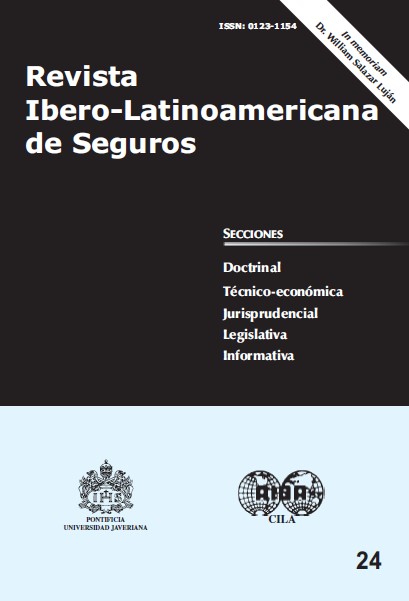Abstract
On this article, after a brief report of the situation of the hermeneutics, especially the juridical, a review is made, about the rules of interpretation in the bills for an Insurance Contract Act, presented in the Peruvian Congress since 1997. The bills are compared among them and to the other circulating in the field, like the one made by the Insurance Company Association, but specially to the bill prepared by the argentinian professor JUAN CARLOS FELIX MORANDI, for the Latin American Section of the International Association of Insurance Law (AIDA), before he died. The comparison is made article by article, item by item. It start by the sources used on the interpretation, follow by the integration of the antecedents which precede the formalization of the contract in order to its interpretation, the way to follow in the interpretation of equivocal, ambiguous or dark words or clauses, the restricted interpretation that should be made to the insured obligations, the forbidden pact against the law and, finally, the implied insurer recognition when it did not invoke a fact that was previously known in order to reject a claim. The author propose the inclusion of the insurance basic principles (indemnity, good faith, insurance interest and the adequate cause doctrine) with specific wording in this or other part of the bill and finished with an invocation to the insurers to support the preparation and promulgation of a modern Insurance Contract Act that protect basicly the consumer or insured.
This journal is registered under a Creative Commons Attribution 4.0 International Public License. Thus, this work may be reproduced, distributed, and publicly shared in digital format, as long as the names of the authors and Pontificia Universidad Javeriana are acknowledged. Others are allowed to quote, adapt, transform, auto-archive, republish, and create based on this material, for any purpose (even commercial ones), provided the authorship is duly acknowledged, a link to the original work is provided, and it is specified if changes have been made. Pontificia Universidad Javeriana does not hold the rights of published works and the authors are solely responsible for the contents of their works; they keep the moral, intellectual, privacy, and publicity rights.
Approving the intervention of the work (review, copy-editing, translation, layout) and the following outreach, are granted through an use license and not through an assignment of rights. This means the journal and Pontificia Universidad Javeriana cannot be held responsible for any ethical malpractice by the authors. As a consequence of the protection granted by the use license, the journal is not required to publish recantations or modify information already published, unless the errata stems from the editorial management process. Publishing contents in this journal does not generate royalties for contributors.


